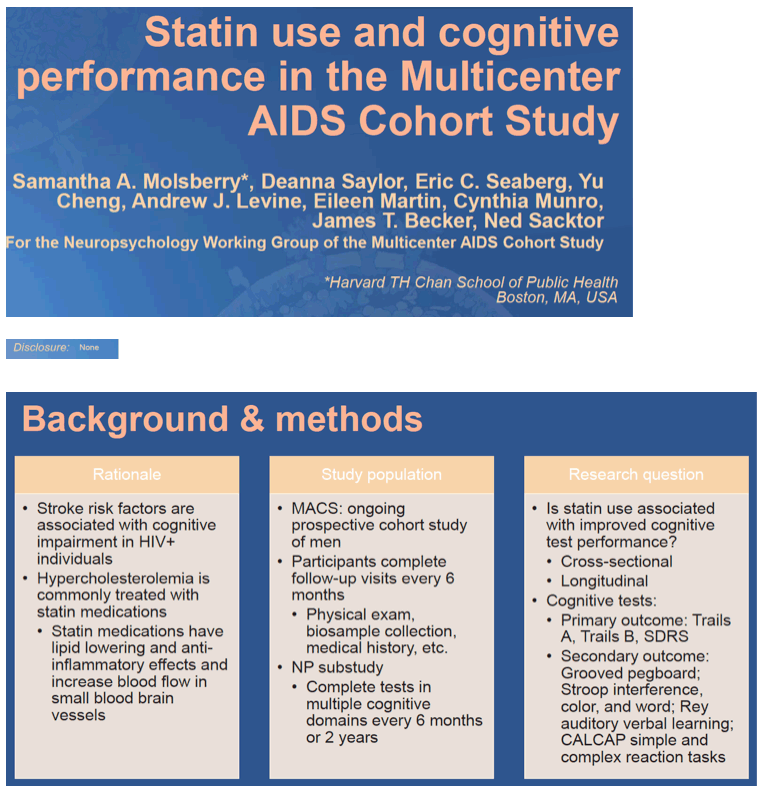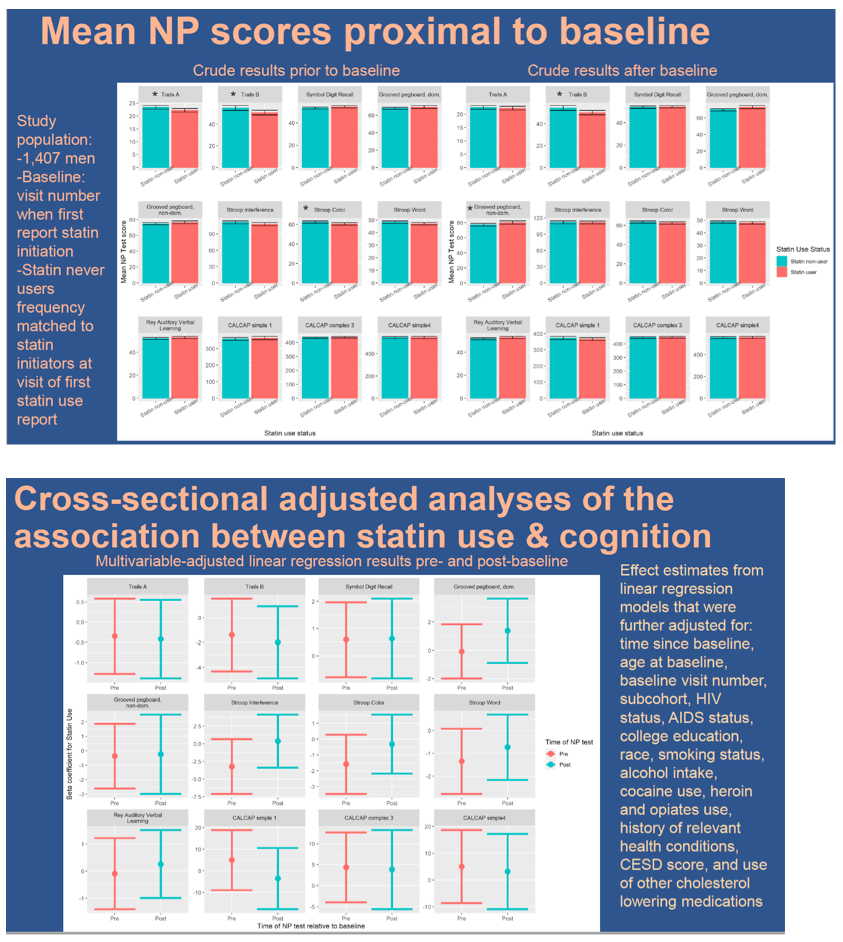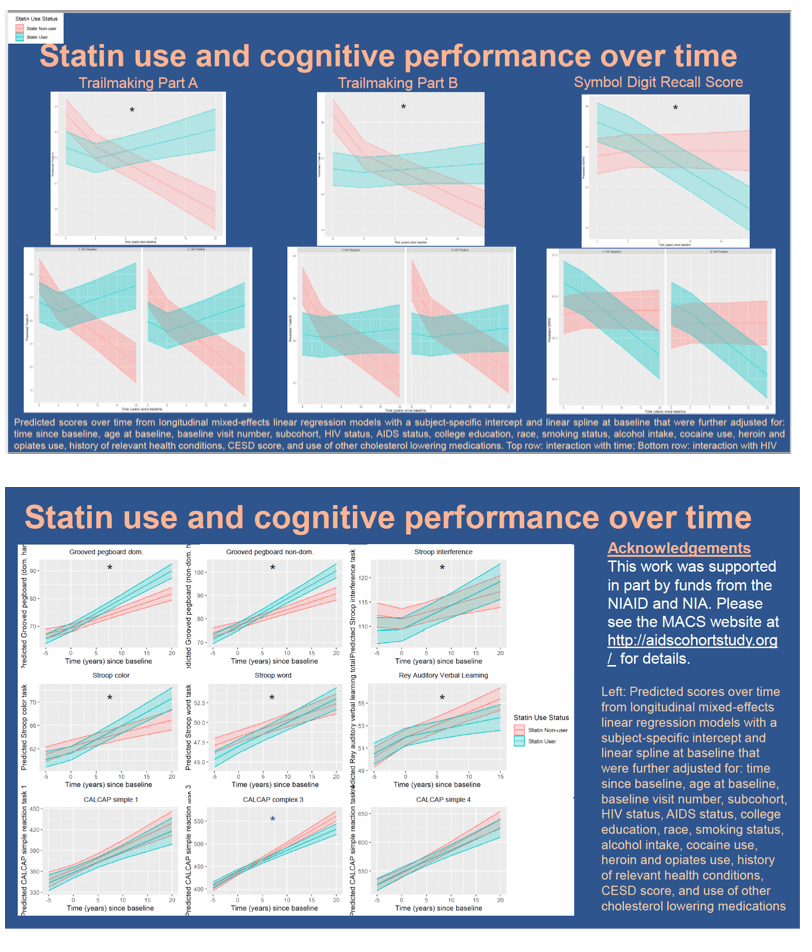 |
 |
 |
| |
STATIN USE AND COGNITIVE PERFORMANCE IN THE MULTICENTER AIDS COHORT STUDY
|
| |
| |
CROI 2021 March 6-10 reported by Jules Levin
Deanna Saylor1, Samantha A. Molsberry2, Eric C. Seaberg1, Yu Cheng3, Andrew Levine4, Eileen Martin5, Cynthia Munro1, Frank Palella6, James Becker3, Ned Sacktor1
1Johns Hopkins University, Baltimore, MD, USA, 2Harvard TH Chan School of Public Health, Boston, MA, USA, 3University of Pittsburgh, Pittsburgh, PA, USA, 4University of California Los Angeles, Los Angeles, CA, USA, 5Rush University, Chicago, IL, USA, 6Northwestern University, Evanston, IL, USA
Background: Cardiovascular and cerebrovascular ischemic disease risk factors are associated with cognitive impairment in HIV seropositive individuals. Hypercholesterolemia, one such risk factor, is often treated with statin medications. Statin medications have both lipid lowering effect and anti- inflammatory properties, can improve endothelial function, and enhance dynamic blood flow in cerebral small vessels, which could potentially benefit cognitive function.
Methods: Using data from 1,407 participants in the Multicenter AIDS Cohort Study who either ever or never initiated statins, we explored the relationship between statin use and cognitive performance over time. Neuropsychological tests that were considered include: Trail Making A and B, Symbol Digit Recall, Grooved Pegboard dominant and non-dominant hands, Stroop interference, word, and color task, Rey Auditory Verbal Learning total score, and CALCAP simple reaction task 1, complex reaction task 3, and simple reaction task 4. Multivariable-adjusted linear regression analyses were estimated to determine the association between ever statin initiation and cognitive test performance at the visits prior to and post statin initiation. Longitudinal linear mixed-effects models were estimated to determine the relationship between statin use (ever or current) and cognitive test performance over time.
Results: After adjusting for potential confounders, statin initiation was not significantly associated with performance on any neuropsychological test either at the last test completion prior to statin initiation or for the first test completion after statin initiation. Longitudinally, statin use was strongly associated with cognitive test performance such that statin initiators tended to have, on average, a faster rate of cognitive test performance decline. HIV- serostatus did not significantly modify our results for the majority of cognitive tests that were explored.
Conclusion: After adjusting for confounders, cognitive test performance did not markedly differ between statin initiators and non-initiators at time proximal to initiation, but, longitudinally, statin initiators' test performance declined more quickly. HIV-serostatus did not modify these results.



|
| |
|
 |
 |
|
|